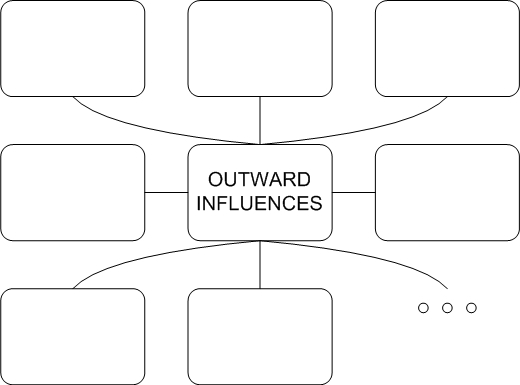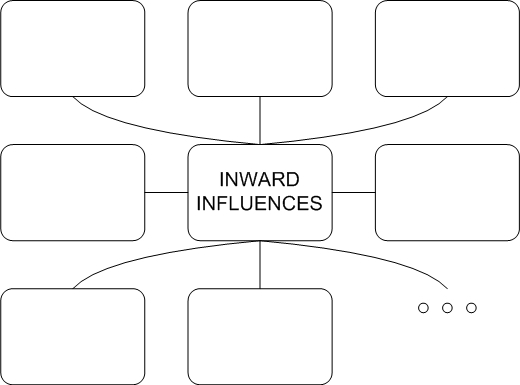
- •Introduction
- •1. How do you choose a career?
- •1.1. “Working” vocabulary
- •1.2. Choosing a career
- •Choosing a career
- •1.3. Career and personality
- •What is Your Career Personality?
- •Does My Personality Match this Career?
- •1.4. The 10 top steps for choosing a career
- •The 10 top steps for choosing a career
- •1. Begin with your values.
- •2. Identify your skills and talents.
- •3. Identify your preferences.
- •4. Experiment.
- •5. Become broadly literate.
- •6. In your first job, opt for experience first, money second.
- •7. Aim for a job in which you can become 110% committed.
- •8. Build your lifestyle around your income, not your expectations.
- •9. Invest five percent of your time, energy, and money into furthering your career.
- •10. Be willing to change and adapt.
- •1.5. Revision
- •2. Looking for a job
- •2.1. Work
- •2.3. Job search methods
- •Job search methods
- •2.4. Experience first, money second
- •My life as an intern
- •2.5. Revision
- •3. Applying for a job
- •3.1. Looking for and applying for a job
- •3.2. Want ads
- •3.3. How does a selection process go?
- •The Selection Process
- •Interview...
- •3.4. Getting ready for a job interview
- •Curriculum vitae
- •Interests
- •Personal statement
- •Covering letter
- •Mega Video Store requires trainee manager
- •16, London road,
- •23, High Road,
- •Planning
- •Writing
- •Checking
- •3.5. A job interview
- •3.6. Getting and keeping a job
- •3.7. Revision
- •4. At work
- •4.1. Career and promotion
- •One man's career
- •Being busy
- •Other idioms connected with work
- •During your working life
- •4.2. Colleagues and routines
- •Colleagues
- •Daily work routines
- •During the day (different work-patterns)
- •Types of work
- •4.3. Revision
- •5. The everchanging workplace
- •5.1. Revolution in the workplace
- •Recent changes in the world of work
- •Help wanted
- •5.2. The changing workplace
- •What makes a good workplace?
- •The Changing Workplace
- •5.3. Revision
- •6. Gender issues in the workplace
- •6.1. Men vs women
- •6.2. Gender stereotypes at work
- •6.3. Inequality at work
- •Inequality at work
- •6 .4. Gender discrimination in the workplace and at home
- •6.5. Balancing home and work
- •Balancing home and work
- •Value of housework
- •A Cinderella story
- •6.6. Revision
- •7. Check yourself
- •2. Write some collocations or brainstorm some related topics 1. Write a definition
- •Vocabulary Word
- •3. Use the word in a sentence or question 4. Recall a sentence with the word from the text.
- •Useful phrases
- •Writing a Summary Conflicting interests
- •Understanding the task
- •Deciding what is important
- •Answering questions to write a summary
- •Summarising a paragraph
- •Cutting out unnecessary information
- •6. Understanding the task
- •7. Planning
- •8. Writing
- •9. Checking
- •Presentation Signpost Expressions
- •Introducing the topic
- •Presentations. Structure and Useful Phrases
- •Introduction
- •Interpreting information
- •Discourse markers in speech and in writing
1.5. Revision
Task 1. Choose one of the words or word combinations below and complete the Vocabulary Word Map (see Appendix 2):
career;
work;
to pursue;
to look inward/ outward.
Task 2. Complete the mind-maps. You can use both the ideas from the texts (“Choosing a career”, “Does my personality match this career?” and “The 10 top steps for choosing a career”) and your own ideas.


Task 3. When learning English it is a good idea to be aware of collocations. Collocations are combinations of words that often occur together. For example, some verbs are often followed by certain nouns. The more collocations you are aware of, the easier reading and speaking becomes.
Complete the table with as many collocations of the given words as you can.
Verb |
Collocations |
to choose |
|
to follow |
|
to pursue |
|
to look |
|
to explore |
|
to evaluate |
|
to postpone |
|
to procrastinate |
--- |
to analyze |
|
to balance |
|
to change |
|
to focus on |
|
to face |
|
to take |
|
to make |
|
to put |
|
to base on |
--- |
Noun |
Collocations |
a job |
|
Task 4. Translate the sentences into English using collocations from Task 3:
Родители не должны оказывать сильного влияния на своих детей, когда те выбирают будущую профессию. Они должны прислушаться к себе (а не к мнению других людей), оценить свои способности и сами решить, кем станут.
После увольнения он искал работу целых 3 месяца. В конце концов, подробно изучив рынок труда, он решил основать свой собственный бизнес.
Я не люблю долго тянуть с решением. Если уж налицо проблема, то почему бы не начать ее решать сразу же?
Все утверждали, что Софи просто пошла по стопам родителей. А она ведь преследовала именно свои интересы. Кто же виноват, что выбор родителей совпал с выбором их дочери?
Task 5. Make a list of similar ideas from the texts “Choosing a career”, “Does my personality match this career?” and “The 10 top steps for choosing a career”. Be ready to present them in class.
SPEAKING
Task 6. Prepare a presentation “GENERAL DOs AND DON’Ts WHEN CHOOSING A CAREER”. Try to support it with some visual aids (posters, handouts, etc).
